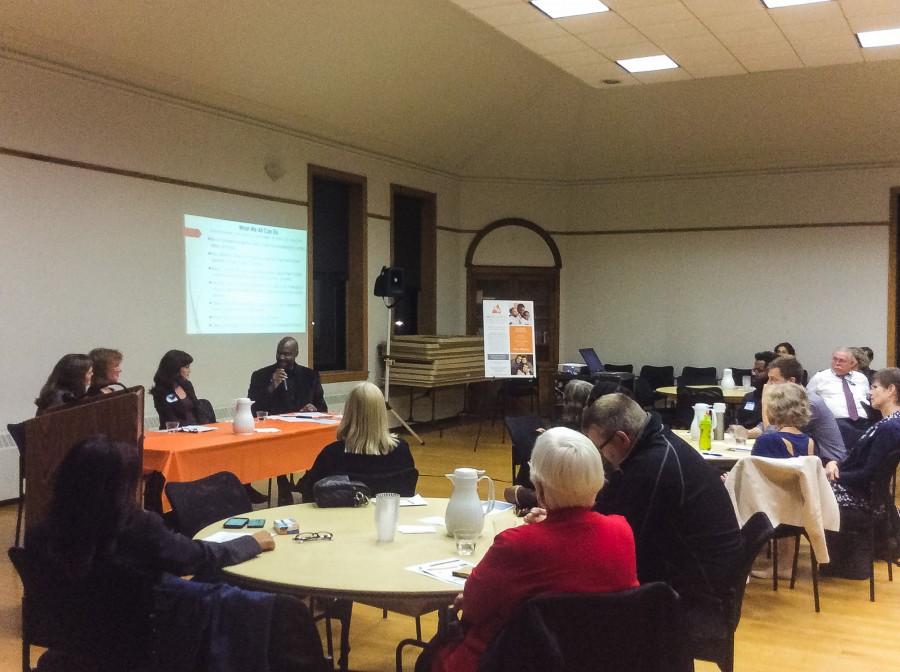Community members discuss youth violence in Evanston
Hal Jin/The Daily Northwestern
Steve Bynum, the senior producer at public radio station WBEZ, moderates a discussion on youth violence at the Lorraine H. Morton Civic Center. The discussion talked about how young people can stand up to violence in the community.
October 9, 2014
A panel of local experts discussed youth violence in the community at a forum Wednesday.
The two-hour-long discussion, which took place at the Lorraine H. Morton Civic Center, was interspersed with questions and remarks by the more than 25 audience members, who included social workers, teachers, parents, representatives from faith communities and about a dozen family service organizations.
The event was sponsored by Metropolitan Family Services and the Youth Organizations Umbrella. Both organizations implement preventative measures in youth violence and provide support for survivors.
Metropolitan Family Services program manager Heather Flett and Y.O.U. clinic coordinator Melody Rose represented the organizations on the three-person panel, along with Sally Christensen, the YWCA Evanston/North Shore violence prevention and outreach coordinator.
Steve Bynum, senior producer at public radio station WBEZ and moderator of the discussion, opened the forum by referencing the recent shooting death of Maxwell Gadau, a high school senior from Skokie.
“You have to have a sense of imagination, because if you focus on the harsh reality in front of you, you will fall prey to fear,” Bynum said.
Flett stressed the importance of building “a critical mass of young people” who are informed and able to stand up against teen violence.
All panel members discussed the role of technology in youth violence, expressing their personal unfamiliarity with social media and general distaste for how it distances interaction between children.
“The rhetoric regarding social media needs to update from something that we see as a home for very bizarre interactions, something that we don’t understand,” said Anthony Betori, who identified himself as one of the younger members in the audience. “I think it’s a very beautiful community that’s being created.”
Discussion also centered on restorative justice as a better system of discipline rather than criminal justice. Restorative justice focuses on the needs of those involved in repairing the damage, as opposed to punishment that solely depends on the severity of the law broken.
“It’s great in building empathy,” Christensen said. “It’s much harder to hurt someone that you know, that you care about.”
Kimberly Frazier, an audience member who works with the Dajae Coleman Foundation, said she was concerned with the productivity of the forum.
“The forum was very informative, and it’s great to see so many members of our community come together for this cause,” Frazier told The Daily. “But we hoped to see more action-related items that our foundation can use to advance our cause.”
Email: [email protected]


